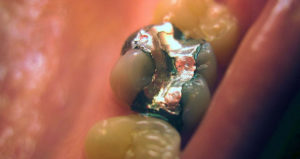European Commission has to take urgent action on hormone disruptors

- 10 March 2016
-
Editorial Team
Share article:
Endocrine-disrupting chemicals can affect reproduction of future generations of fish. Photo: Wikimedia Commons
Identifying and banning potentially harmful hormone disruptors is taking too long. At the end of 2015 the Genaral Court of the European Union ruled the European Commission (EC) breached EU law by failing to publish a definition for hormone-affecting chemicals. The European has to act quick and identify criteria for hormone disruptors in 2016.
The European Council adopted a statement on the 4th of March concerning the ruling regarding endocrine disruptors. The statement underscores the importance of urgent action by the Commission to comply with the judgement and its legal obligations, in order to prevent any further delay in developing science-based criteria for endocrine disruptors.
Sweden
The European Commission was taken to court by Member State Sweden and four other Member States because of ‘failure to act’ proceedings. The Commission stated back than it took note of the court decision and it is already conducting a study in order to solve the issue. “The objective is to conclude the impact assessment in 2016. The decision-making concerning the criteria for identifying endocrine disruptors will follow thereafter”, a spokeswoman said to Euractiv.
Impact analysis
In May 2014 Sweden brought the case against the Commission, saying its efforts had come to a complete standstill and that illnesses caused by the chemicals could be costing hundreds of millions of euros every year. The Commission was obliged under the EU’s biocides regulation to adopt scientific criteria for the identification of these chemicals by 13 December 2013. However, in July 2013, a draft proposal was blocked by the Commission’s former Secretary-General, Catherine Day, who wanted the executive to make an impact analysis first. The General Court of Justice said in its ruling that the impact analysis proposed by the executive and Day was unnecessary.
Plastics
Some chemicals that are used to soften plastics can be found in everyday products such as rubber boots and bath curtains have come under suspicion of harmfully affecting the human endocrine system. Rising levels of cancers and fertility problems have attracted scientists’ attention to endocrine disrupting chemicals, with some calling for strict regulation of the substances, in line with the precautionary principle.















